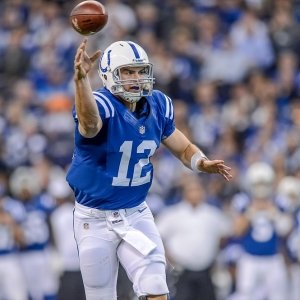
The NFL has released an official injury report every game week since 1947. It's widely credited as a byproduct of the gambling that takes place on NFL games. This assertion appears to be correct, as multiple online sources report the NFL created the injury report after allegations surfaced of an attempt to fix the 1946 NFL Championship Game.
This quick history lesson is meant to preface the news this week that the NFL is making the first major change to its injury reporting system in decades. Beginning this year, no longer will the injury report offer a "probable" classification, which had meant a player had an above 75 percent chance of playing. Now, the only classifications are "questionable," "doubtful" and "out." The new "questionable" classification means it is uncertain whether a player will play; "doubtful" means it's unlikely a player will participate; and "out" means he will not play.
This would seem a rather significant change to the NFL's injury reporting system. And given its purported purpose of being a tool for gamblers, handicappers and bookmaker alike must be scrambling to figure the changes potential impact, right? Wrong. The tweak has been largely met with yawns in the sports betting world.
The irony is that the injury report has been mostly irrelevant for years, which is largely the result of teams increasingly manipulating the system and thus defeating the spirit of the rule. Furthermore, in today's online world, there are simply better and timelier sources for injury information than the NFL's official report.
Scott Cooley is an odds consultant at BookMaker . He said the change to the injury report "won't affect what we do in any fashion.
"It will be exactly the same as it has been, nothing changes really...We far more rely on our own sources and the media for information," Cooley said.
So in reality, each week's official injury reports should be considered merely a launching point for further research. For bettors, the more important tool when tracking injuries are the daily practice participation reports released by each club Wednesday through Friday. Injured players are required to be categorized as either did not practice, limited practice or full practice. This is what NFL coaching staffs and seasoned bettors alike use to gauge the potential impact of injuries.
Saints Coach Sean Payton echoed those sentiments this week when discussing the new injury report protocol with the New Orleans Advocate. He said the daily practice participation information is a much more valuable tool when sizing up an opponent. If there's an opposing player with nagging injury, for example, the Saints coaching staff will look at how much the player practiced this week and how it compares to previous weeks. Any change in the pattern, i.e. additional missed practice time, can indicate a potential change in the player's gameday status.
"It would really be DNP, limited full--those are the three things that are applicable that you pay attention too," Payton told the Advocate.
With that sentiment in mind, Doc's Sports this season will offer a new feature designed to help bettors track each week's key injuries. Every Friday, Doc's will use both the daily practice reports and official injury report to paint the clearest picture possible of the week's NFL injuries. Obviously, it will be more projection than fact given the latter is a virtual impossibility. But injuries can play a critical role in determining the outcome of an NFL game. For bettors, the more information on this front, the better.
Most Recent NFL Handicapping
- NFL Betting Predictions: Divisional Round Opening Line Report and Picks
- NFC Odds to Make the Super Bowl: Best Bets and Predictions
- 2025-26 NFL Playoff Brackets - Printable NFL Playoff Brackets
- AFC Odds to Make the Super Bowl: Best Bets and Predictions
- Updated NFL Player Awards Odds and Expert Betting Predictions
- NFL Betting Predictions: Wild Card Round Opening Line Report and Picks
- NFL Betting Tutorials, Best of Lists, Top Articles from Experts
- Best NFL Teaser Bets Week 18: Basic Strategy Teasers
- NFL Betting Predictions: Week 18 Opening Line Report and Picks
- Best NFL Teaser Bets Week 17: Basic Strategy Teasers
